Hospital for Special Care’s Ivan Lendl Adaptive Sports Camp
CELEBRATING 35 YEARS OF PIONEERING INCLUSION AND ACCESSIBLE FITNESS
By Ariana Rawls Fine
Attending a summer camp is a rite of passage for many youth in New England and beyond. But finding the right fit becomes much harder when you have a disability. Janeace Slifka, founder of Hospital for Special Care’s (HFSC) Ivan Lendl Adaptive Sports Camp, was looking for inclusive camps over 30 years ago for her son, who was born with spina bifida. She found few options for youth living with neuromuscular disorders and in wheelchairs, especially on a local level.
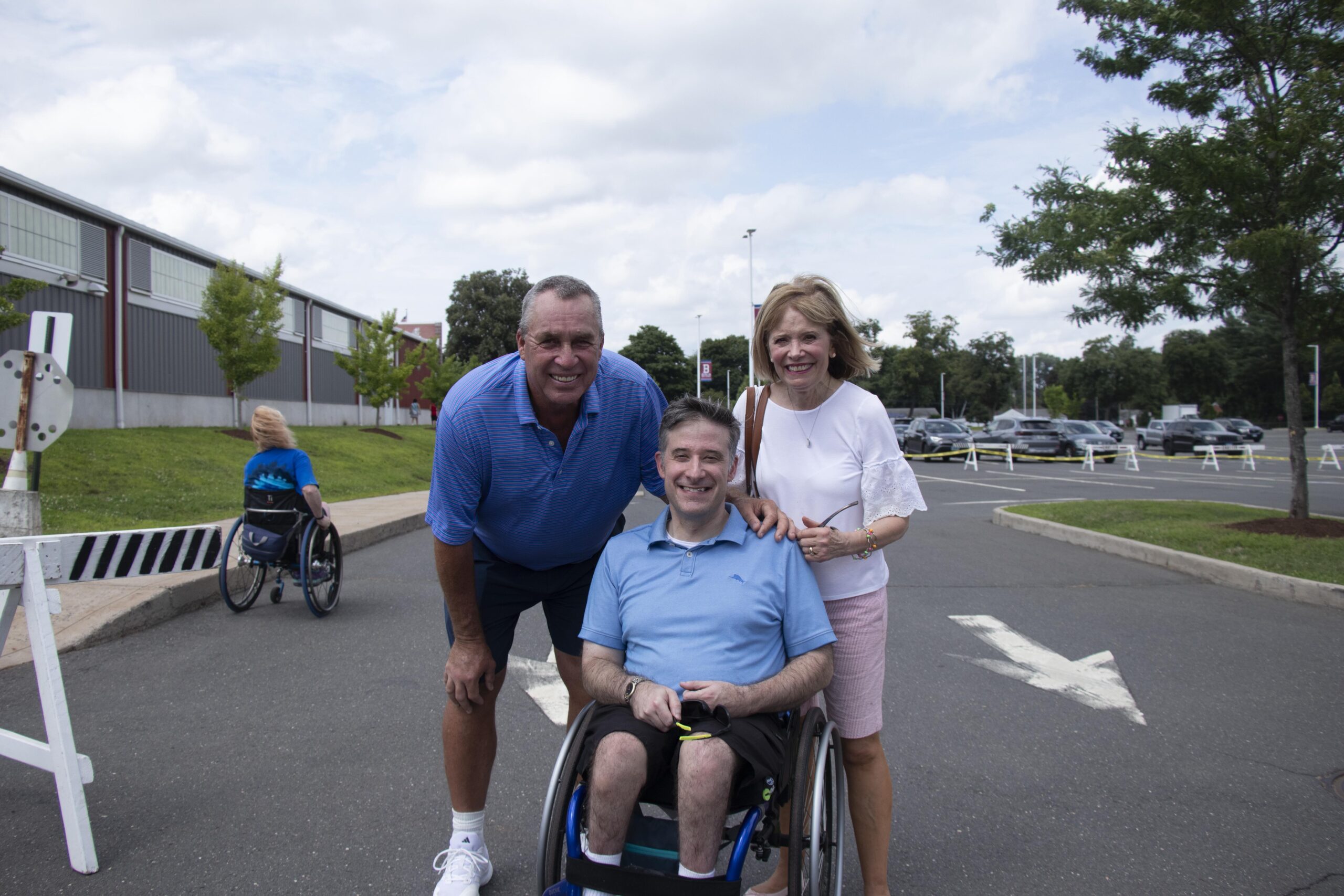
Through a connection between her son, Jonathan Slifka, and Ivan Lendl through the March of Dimes, the Czech-American former professional tennis player and coach partnered with the Slifkas to create Ivan Lendl Junior Wheelchair Sports Camp. The safe recreational and competitive sports camp was the first of its kind in the northeast 35 years ago. After fundraising for a year, the first camp was held with the support of National Foundation for Wheelchair Tennis. Starting with 26 children in 1991, the camp joined forces with HFSC in 1996.
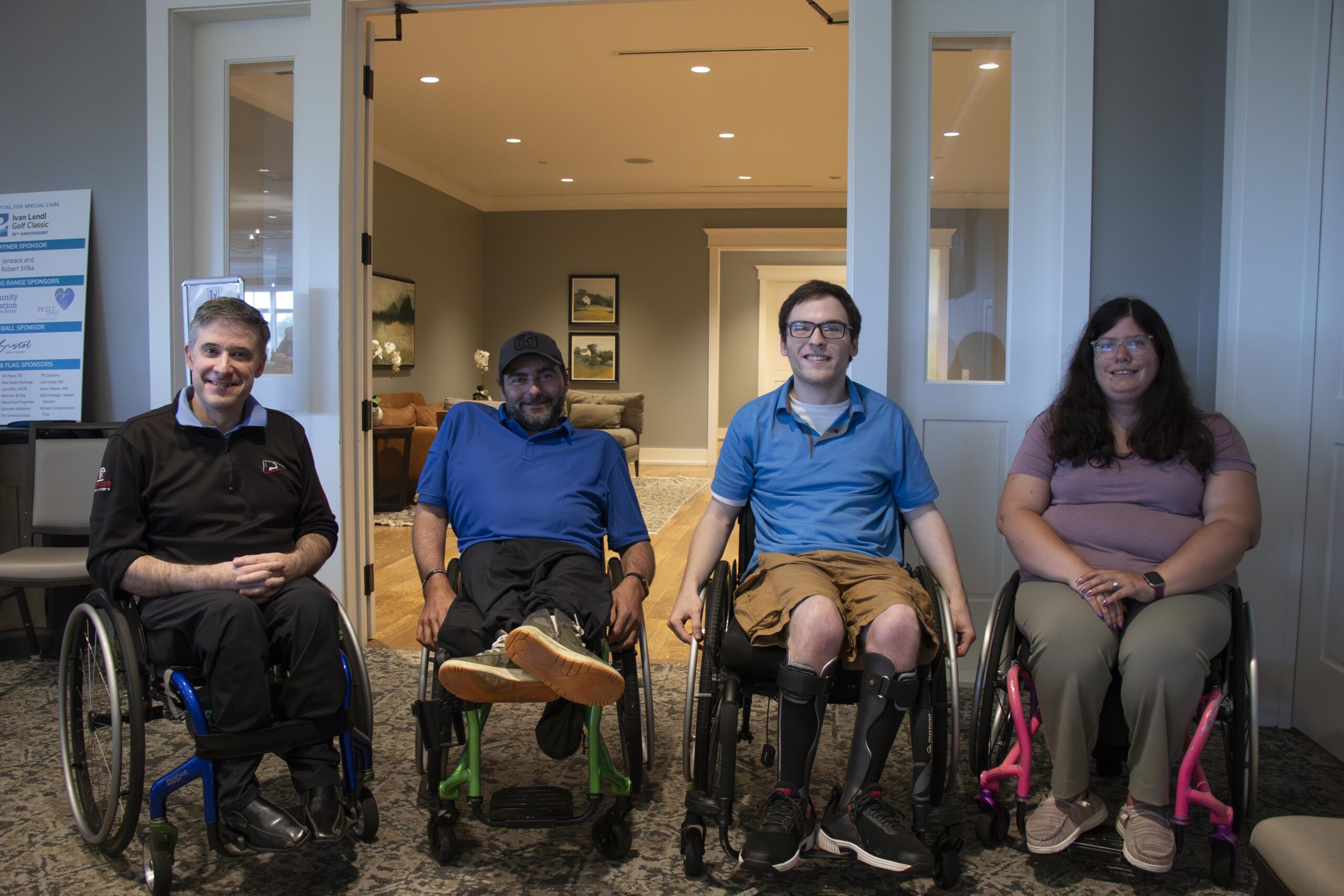
From the beginning, the camp’s goal and growth prioritized inclusion and accessibility, including the more recent expansion to launch a program for youth with autism spectrum disorder (ASD). The organization brought in 40 primarily adaptive athletes and five neurodiverse athletes with ASD last year from all over New England. The goal is 75 for 2025’s camp, held the week of July 28 in West Hartford at University of Saint Joseph.
For one week each summer, youths living with disabilities participate at their ability level at Ivan Lendl Adaptive Sports Camp, free of charge and supported by the community. It is a chance for them to be involved, respected, challenged and embraced for where they are and their abilities. Children with physical disabilities have opportunities to participate in sport-specific activities with the adaptive sports track while the neurodiverse track offers a flexible environment to support children on the autism spectrum. Basketball, boccia, table tennis, creative arts and expression, swimming, track and field, yoga, power soccer, racing, and tennis are some of the activities offered at the camp. Trained professionals and experienced adaptive athletes coach sports skill training and development. In addition, the camp offers specialized and adaptive sports equipment. Beyond camp, adaptive sports and recreational activities are offered year-round.
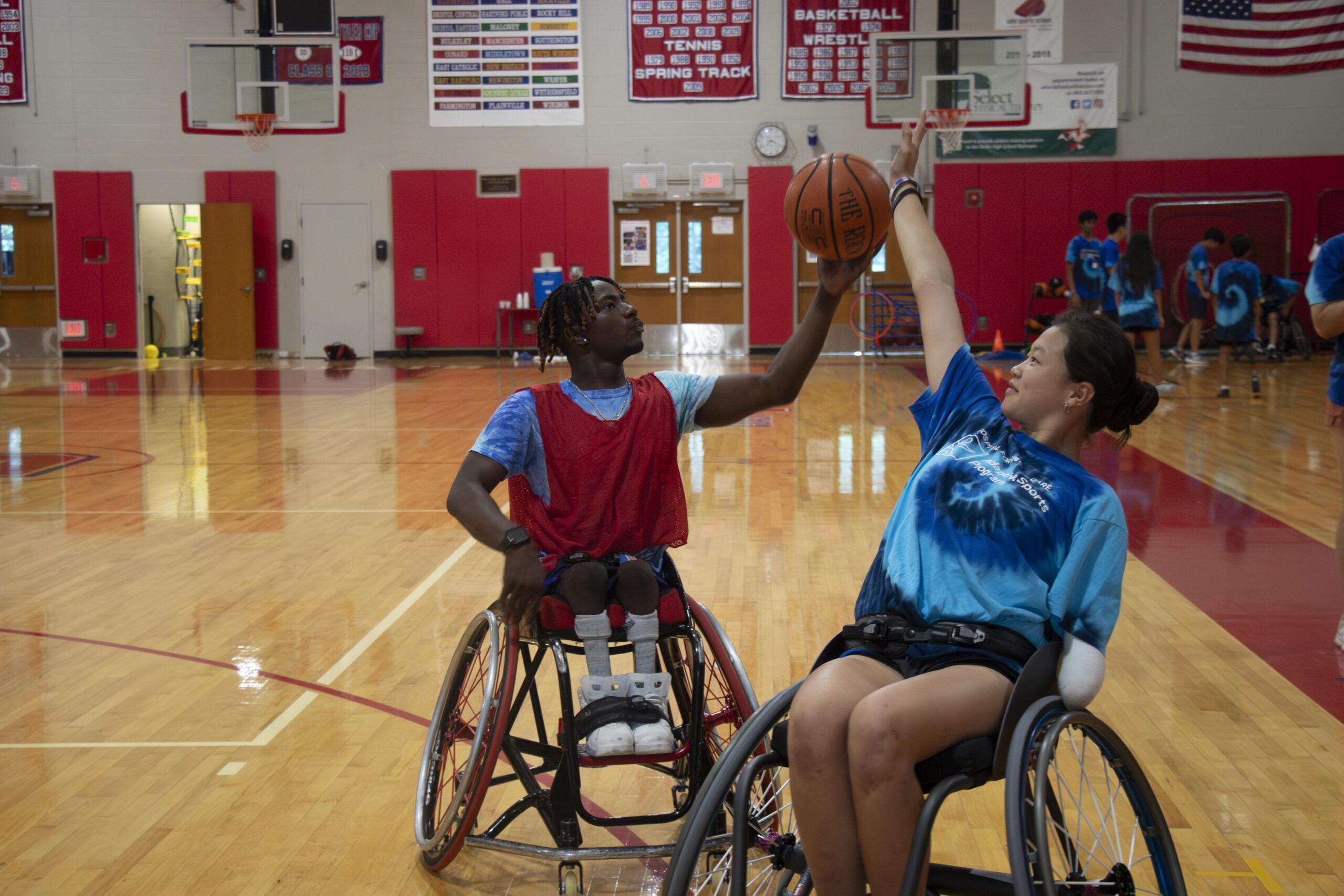
Aware that individuals living with disabilities face a higher risk for diabetes, hypertension and obesity in addition to mental health concerns (depression, anxiety and social isolation), the Slifkas focus on accessible fitness and relationship building at the camp. And they are succeeding. By creating a support network and a feeling of community, campers and their families return year after year. Some continue to return as volunteers, while others become advocates like Jonathan Slifka, who is now the chair of Hospital for Special Care’s Ivan Lendl Golf Classic, raising funds and community support for the organization.
“I started off as one of the original campers. I was 14 when the camp started, then became a counselor in training and then a counselor,” explains Jonathan Slifka. “I did the full spectrum of camp life. I was not a world-class athlete but an example of what it is to live in the real-world with a disability. I am married, have a child and am gainfully employed. For kids to have these kinds of examples who they can stay in touch with throughout the years as mentors, teachers and friends with them and their families is a tremendous benefit for them.”
“The kids’ parents wanted more for their kids, to be employed, to be part of society,” Janeace Slifka gives more context. “In the 1990s, we couldn’t find examples. We make it as normal as possible at camp; there is a lot of care for these kids. We show parents that living life fully is possible. This is a real benefit of the camp, helping the campers with their self-esteem and future: to go and be independent and help themselves, have a quality of life, learn a skill, get educated, have goals. I can’t tell you as a parent what it has done for our family. We wanted to show them that life is what you make it.”
“Mom wanted to redefine what normal is,” Jonathan Slifka concurs. “My disability did not affect me cognitively. That was part of what pushed me to be independent. Playing the comparative game of defining what is normal is a disservice to many with disabilities. I don’t know anything different. Through the camps and the counselors, you learn to live the life that is possible for you.”
Volunteers are the backbone of the camp, whether it is providing one-on-one support to a camper, helping with adaptive sports activities, handling logistics or other tasks. In 2025, the organization had over 30 volunteers at the camp. “It is important to know the kids are taught by wheelchair athletes,” Janeace Slifka adds. “When we started, they didn’t have role models for these kids. Now we have some who have been Paraolympians.”
In order to continue to offer the camp at no cost to participants, the HFSC Ivan Lendl Golf Classic raises funds via sponsorship or individual registration as a golfer or reception guest. The annual golf tournament, which took place at TPC River Highlands in Cromwell, just celebrated its 30th year in May with the event attracting nearly 150 golfers, says Jonathan Slifka. The next tournament is set for May 4, 2026.
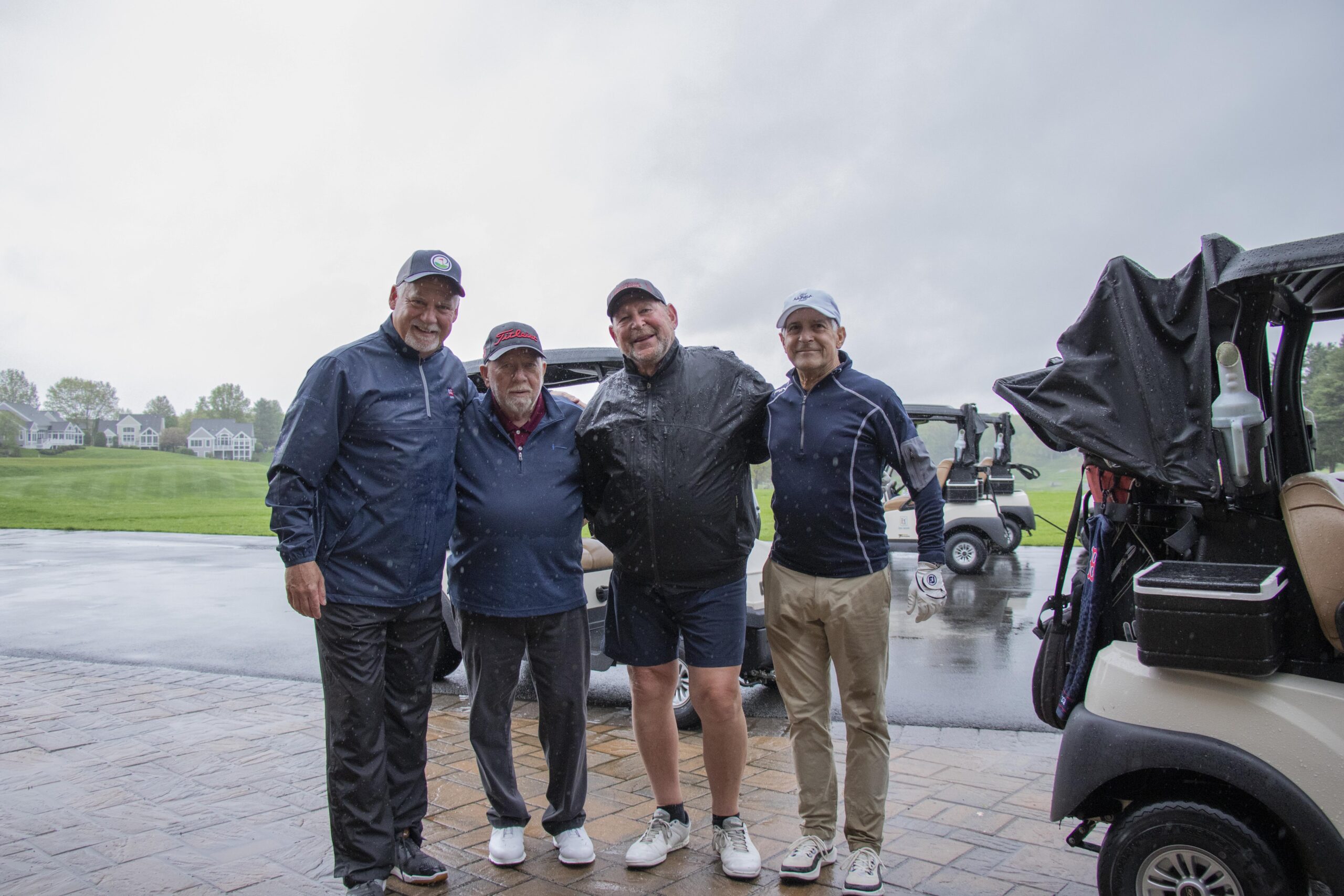
What does the future hold for the program and camp? “We will continue to offer camp for free. The hospital has a large autism program. We want to continue to grow the neurodiverse program in a safe way with counselors trained to be with kids with ASD,” he continues. “Last year was the first year with the neurodiversity track with five campers in 2024 and now we are at 25 in 2025.”
The organization also partners with other organizations, including Connecticut Spokebenders Wheelchair Basketball Team, Miracle League of Connecticut and The Ryan Martin Foundation.
“Look how far we have all come with people with disabilities with accepting and making things accessible,” Janeace Slifka concludes about the organization’s mission of inclusion and accessibility. The camp has had a lasting community impact. “It is still not a perfect world but with this camp, people are more aware now.”
Learn more about Ivan Lendl Adaptive Sports Camp at hfsc.org/sports-and-fitness.



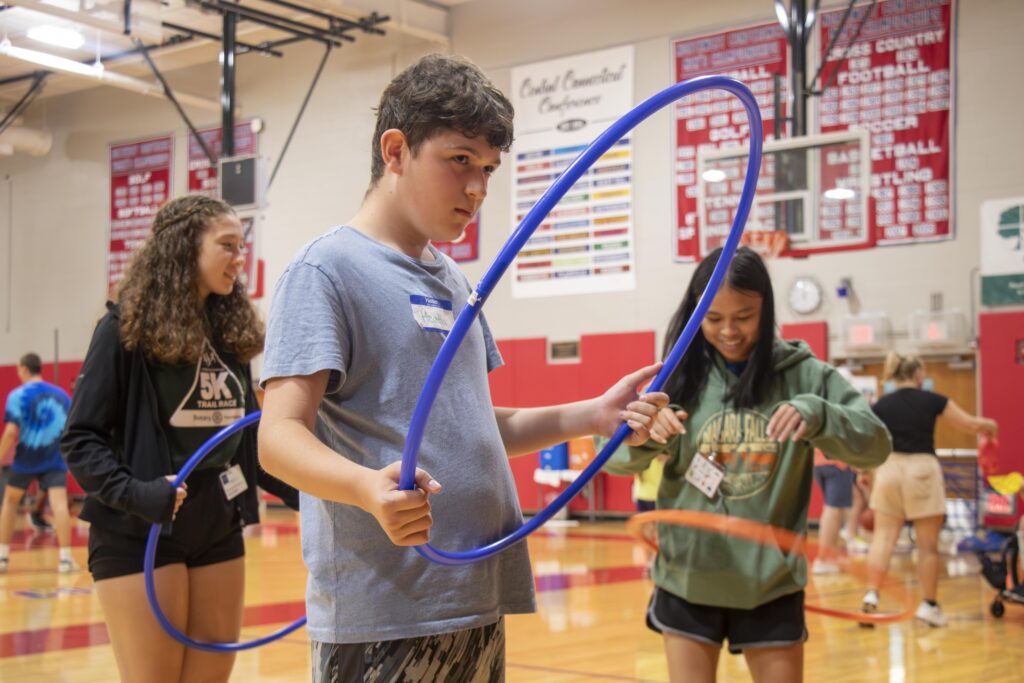


More Stories
Special Olympics Connecticut: Supporting and Inspiring a Special Community
Healing Meals: Supporting Nourishment During a Health Crisis and Beyond
Aurora Foundation: Making a Difference for Greater Hartford’s Women and Girls